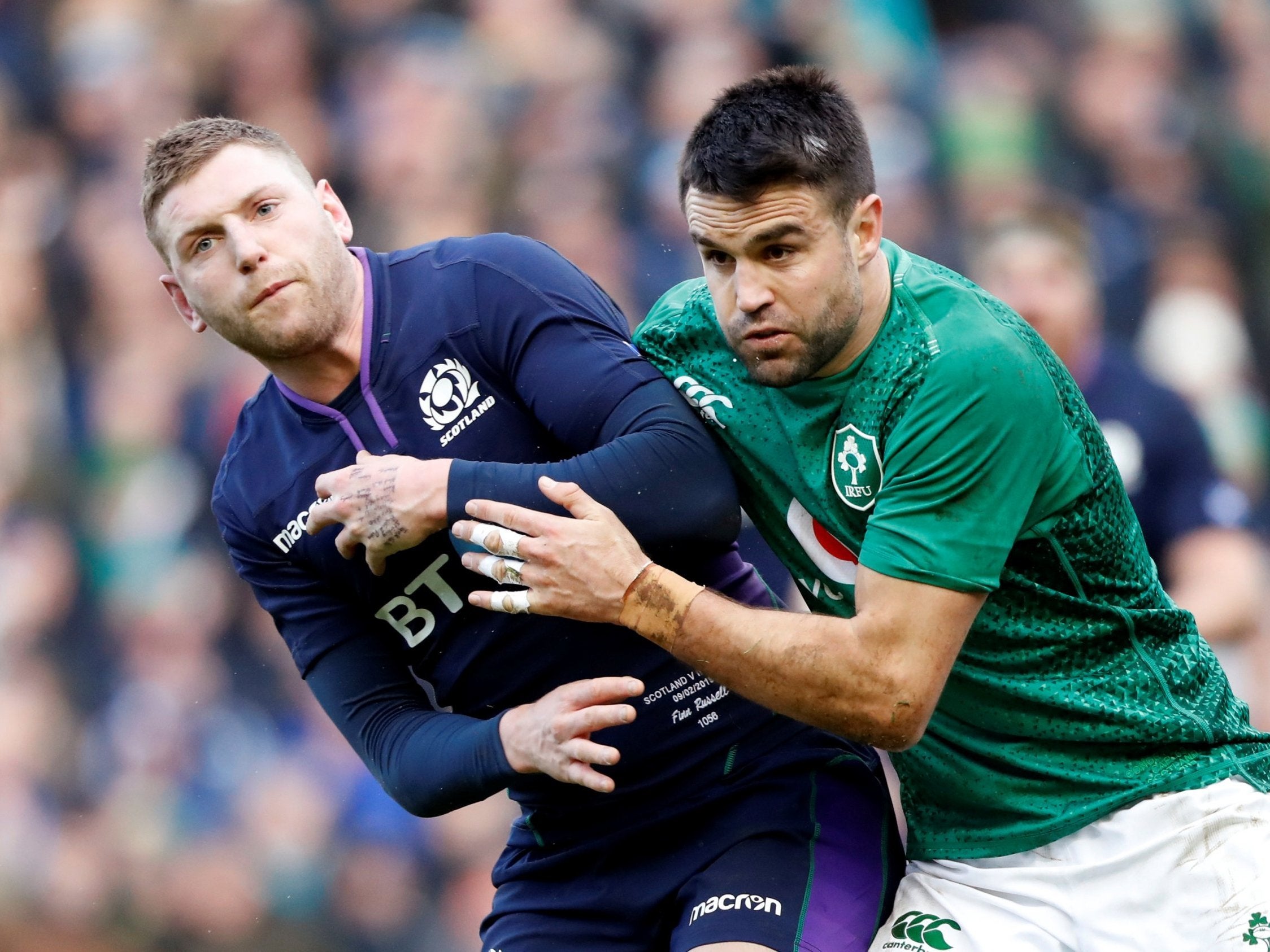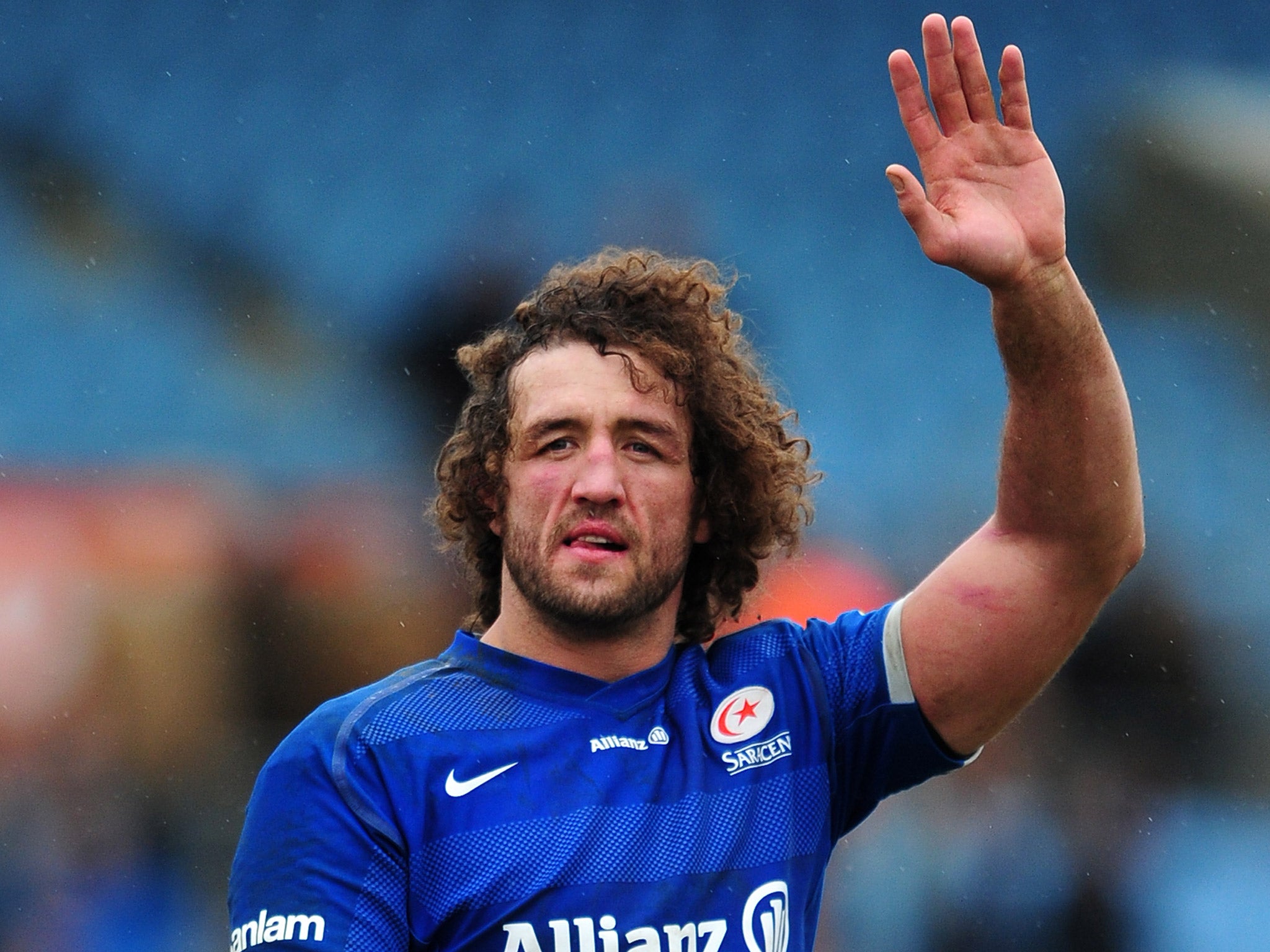Rugby must decide what it wants after taking two steps forward and one step back in battle against concussion
Many in rugby have glorified the hit for so long, making it difficult to shift attitudes

Two steps forward and one big hit back last week as rugby union continued to grapple with its future shape both on and off the pitch.
On the pitch concussion was, of course, high on the agenda and while the huge wads of cash being waved around by CVC Capital Partners and others continued to dazzle some, it is the light that’s been shone on head injuries which is proving just as hard to solve as the future structure of the international game.
Ultimately, rugby needs to decide what it wants to be.
Does it want to celebrate the hit or does it want to do all it can to reduce dangerous high-speed collisions on a field of play which has become horribly congested ever since defensive structure and line-speed became a thing in the past 20 years.
After decades with heads buried firmly in the sand, pretending what plainly obvious was not actually happening, rugby union is trying to address its injury problem. Unquestionably, the sport has come a long way in the past 10 years with attitudes to concussion shifting, education rolled out and young players especially looked after more than ever before. But cultural attitudes are hard to shift. Glorifying the hit is part of some players, fans and coaches DNA. More of that later.
It was fascinating to attend World Rugby’s Player Welfare Symposium in Marcoussis, Paris, last week. Not only because it provided a window into a world rarely seen by the media, historically deeply distrusted by sports scientists and medics for reasons we can only assume is due to their preference for editorial content served impenetrably nuanced, but also because it revealed what appeared, on the surface at least, to be a genuinely heartfelt desire to improve player safety.
The death of four French rugby players in the space of eight months between April last year and January of this unquestionably played a part. It was no coincidence to hear French Rugby Federation representatives calling for the most radical changes to the tackle area, where most concussions occur.
But it was also encouraging to hear the likes of Professor Simon Kemp from the RFU sound emboldened and on occasions even radical when it came to finding ways to tackle an issue which sports medics singularly failed to get taken seriously until the media waded clumsily in.
Generally the mood was optimistic if realistic. This won’t happen overnight and evidence is required. But change has to happen. Everyone agreed that.
After lengthy debate, eight ideas were finally put forward to World Rugby’s influential Law Review Group, all of them designed to reduce the number of collisions while encouraging players to tackle lower.
All were aimed at creating more space on the field, reducing head to head collisions and improving injury rates. The 50-22 kick to remove defenders from the rushing line, a 10-minute window for referees to decide on red and yellow cards and the reintroduction of the RFU’s tackle height trial were the ones which gained most traction.

The law of unintended consequences – notably around injuries rather than spectacle – was a primary concern.
All will need to be trialled before they can even be considered in law. In truth, none of them felt like a game-changer in concussion terms although some of them made a lot of sense.
The symposium occasionally slipped into a back-slapping exercise with not enough made of the significant statistical increase in severity of injuries, even if the number of injuries has plateaued in recent times. Thank God.
But there is progress at least and a belief in the room that just as the neck breaking and pointless engagement “hit” was removed from the scrum, as well as the tip tackle, so too can concussions be reduced (although never removed) if the right type of energy is invested.
Two steps forward, I’d say.
But while rugby to continue to make strides, it needs to acknowledge there remains a hardcore luddite element which refuses to acknowledge progress or accept change. I’ll called it “old school” once. Let’s not go there.
Take Jacques Burger for example. One of the finest, bravest and most admired players in the history of the sport, and if we’re honest one of those whose long-term neurological health would be of most concern considering the sheer number of hits he took in his career.
Burger was always eye-wateringly committed and brave to the point of being reckless as a player.
In truth, I didn’t like the way he played. It scared me. And it probably scared his opponents because if he didn’t care what happened to himself, the risk to his opponent was also exponentially magnified.
So Burger should reflect on the Tweet he put out on Saturday afternoon showing the sickening video of a child, probably no more than 16 years old, playing in a game in South Africa’s Craven Week schools tournament between Monument School and Paarl Boy’s.

The boy caught the ball and passed before being hit with such staggering force from an opponent – far bigger than himself – coming from his blindside, that he flipped in mid-air before crashing down head first onto the rock-hard turf. He tried to get up but couldn’t. He had clearly suffered a brain injury.
Burger posted the tweet, we can assume by the turd emoji and blazing fire which accompanied it, to glorify the “hit”. It’s what he prided himself on after all.
But what he, and those like him, can’t understand is that for every player damaged by one such hit, a hundred parents say “no” you can’t play the game.
Many get it now, some still don’t. Two steps forward, one hit back.
Join our commenting forum
Join thought-provoking conversations, follow other Independent readers and see their replies
Comments